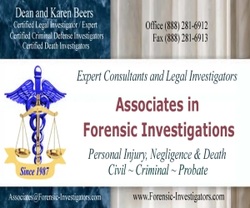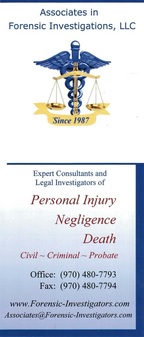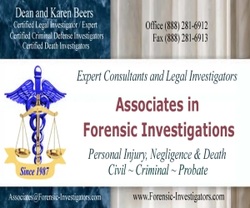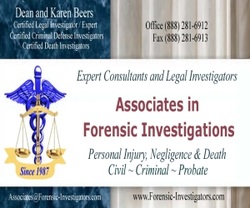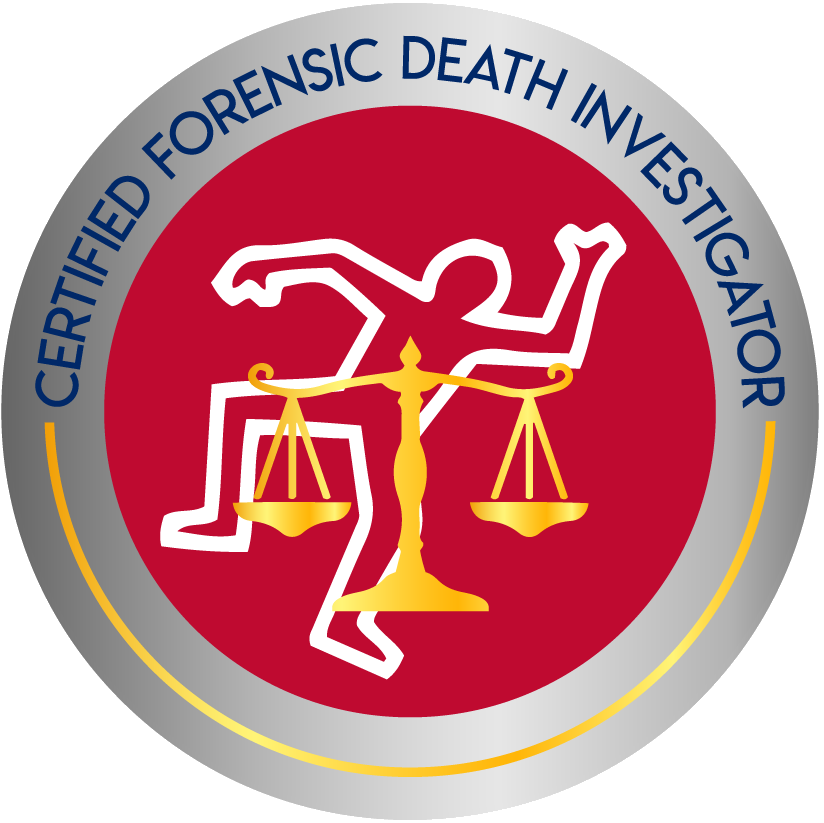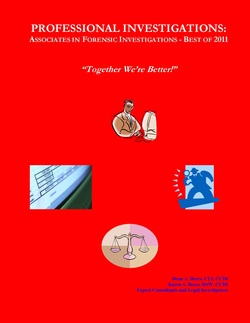
In our continuing goal to give back to our profession, we have just published via ebook 'Professional Investigations: Associates in Forensic Investigations LLC Best of 2011' with articles through 2011:
-- Ethical Considerations for the Professional Investigator (always free)
-- A Comprehensive Investigative Protocol
-- Concepts of Comprehensive Background Investigations
-- Public Records – Thinking Outside the Box on Restricted or Redacted Court Records
-- Understanding and Working Cases of Traumatic Brain Injuries
-- Understanding Post-Traumatic Stress Disorder
-- Investigative Protocol for Civil Legal Investigations of Motor Vehicle Collisions
-- Understanding Suicide and its Prevention - Equivocal Death Investigations
-- Psychological Autopsy, Reviewing and Comprehending Autopsy Reports
-- Just Because it’s “Forensics” Doesn’t Mean it’s “Science.”
-- DNA Primer and Considerations for The Professional Investigator
-- Methods and Procedures for Requesting Change of Address and Boxholder Information from the United States Postal Service
-- Telephonics and Traplines
Plus some books, resources and training information that we have found useful.
It takes a great deal of time to put these things together. For this weekend ONLY it is completely FREE using this discount code - RE67Q (expires April 30, 2012). Through the month of May it will be discounted 25%, so get it this weekend!
These are also available to professional associations, at no charge, for publication - contact us for details.
Go to https://www.smashwords.com/books/view/155943





